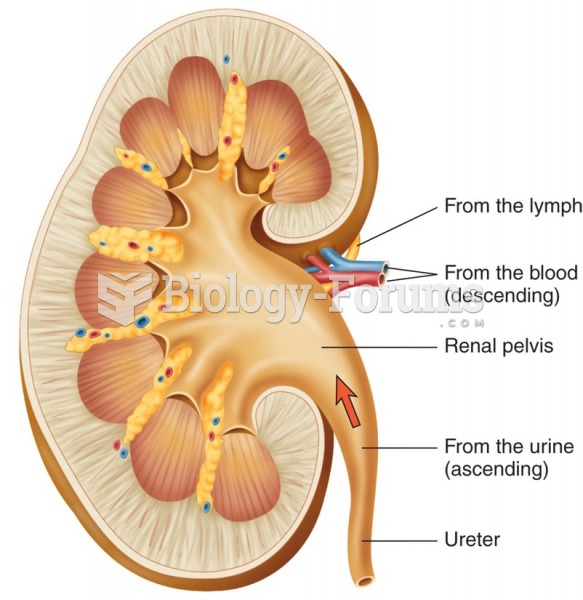|
|
|
Eating food that has been cooked with poppy seeds may cause you to fail a drug screening test, because the seeds contain enough opiate alkaloids to register as a positive.
There are more bacteria in your mouth than there are people in the world.
The calories found in one piece of cherry cheesecake could light a 60-watt light bulb for 1.5 hours.
The familiar sounds of your heart are made by the heart's valves as they open and close.
Many people have small pouches in their colons that bulge outward through weak spots. Each pouch is called a diverticulum. About 10% of Americans older than age 40 years have diverticulosis, which, when the pouches become infected or inflamed, is called diverticulitis. The main cause of diverticular disease is a low-fiber diet.







